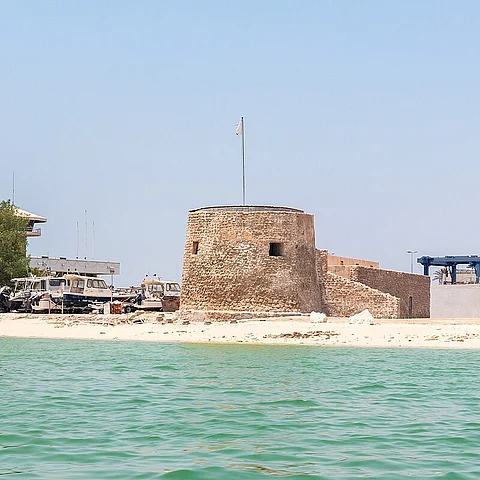
- Destinations
- Experiences
- Stay
- What's new
- Celebrating People
- Responsible Tourism
- CampaignsCampaigns
- SubscribeSubscribe
- Buy NowBuy Now

An island nation in the Arabian Gulf, Bahrain has many archaeological wonders that reveal its deep-rooted history and cultural significance. From ancient burial mounds to the remnants of the Dilmun civilisation, Bahrain's archaeological sites offer a fascinating glimpse into its past.
A UNESCO World Heritage Site, Qal'at al-Bahrain, also known as Bahrain Fort, is one of the most significant archaeological sites in the country. Dating back over 4,000 years, this site was once the capital of the Dilmun civilisation. Excavations have uncovered layers of settlements from different periods, including Portuguese, Persian, and Islamic influences. Visitors can explore the fort's massive stone walls, towers, and surrounding ruins while enjoying coastline views. The on-site museum provides further insights into the site's historical importance.
Located in the village of Barbar, the Barbar Temples are a series of three structures dating back to the 2nd and 3rd millennia BCE. These temples are believed to have been dedicated to the Mesopotamian God Enki and his consort, Ninhursag. The site features an ancient water spring, intricate stone structures, and altars for religious ceremonies. Archaeologists have also discovered artefacts such as pottery and tools, shedding light on the temple's significance in ancient Dilmun society.
The Saar Settlement is an important archaeological site that offers a rare glimpse into daily life during the Dilmun period. This Bronze Age settlement includes well-preserved residential structures, a temple, and a burial complex. The layout of the settlement, with its narrow alleyways and interconnected houses, suggests a close-knit community. Artefacts such as pottery, seals, and copper tools have been unearthed here, revealing trade connections with Mesopotamia and the Indus Valley.
Bahrain is famous for its thousands of burial mounds, and the A’ali Burial Mounds are among the most impressive. These ancient tombs date back to the Dilmun and Tylos periods, with some estimated to be over 4,000 years old. The mounds vary in size and were used for elite burials, including those of rulers and high-status individuals. Some of the more enormous mounds have chambers within them, showcasing the elaborate burial practices of the time. The nearby A’ali Pottery Workshop continues the island’s long tradition of pottery-making, with artisans crafting pieces inspired by ancient designs.
Bu Maher Fort, located at the starting point of Bahrain’s UNESCO-listed Pearling Path, played a crucial role in the island’s maritime history. While the fort dates back to the 19th century, the Pearling Path highlights Bahrain’s rich history as a centre of the pearl trade, which flourished for centuries. The archaeological remains along the Pearling Path, including merchant houses and oyster beds, offer insights into the region's economic and cultural heritage.
